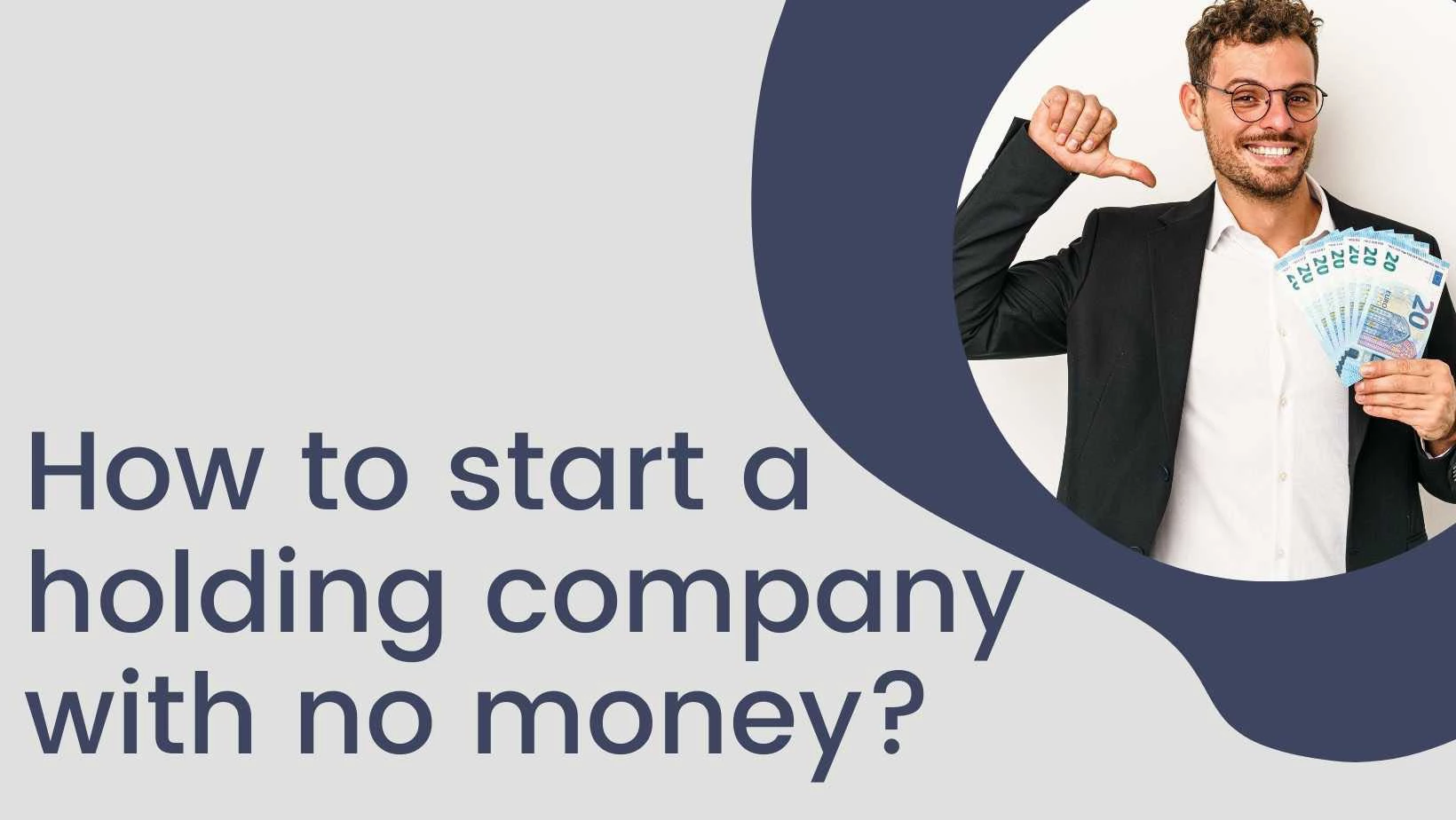You want to be an entrepreneur and you have a great idea for a company. You’ve got it all planned out, from the product or service to the name of your company down to how you’ll market it. But there’s one thing that keeps coming up: should I start my own business or invest in someone else’s? Which option is better and more profitable?
In this blog post, we will go over both options so that you can choose which is right for you!
Article Overview
The difference between starting a business and an investment
Starting a business is when you put in money and time to create your own company or product while investing is putting your money into another company’s stock (or something similar) for potential future income.
When considering which option to take, you must think about how much time and effort you’re willing to put into the company/project and how much money you’re willing to spend. Because starting a business and investing both take time and money, we want to choose the option that will give us the best return on investment (ROI).
Starting Your Own Business
Starting your own company sounds like an exciting opportunity to get into the business world, but it can also be difficult. You will need to learn how to create a brand new business from scratch and then market that new business so that people actually know it exists.
But the biggest challenge you’ll face is not having any of the expertise, guidance, or support that larger companies get. This can be discouraging if you’re new to the business and just getting started.
If you’re thinking about starting your own business, then you probably already know what kind of work environment you prefer. Do you like working alone with little interaction with others? Or do you thrive on being around other people and interacting with them often?
If you are looking at starting your own business because you love meeting new people and having fun socializing, then maybe it’s not a good option for you. However, if you enjoy spending time by yourself but also need some form of income, then starting your own business might be perfect for you.
Investing in Someone Else’s Company
If you don’t mind sitting back and letting someone else take care of everything while you sit back and relax, then perhaps investing in another person’s company would suit you just fine.
This way, you won’t have to worry about marketing, sales, customer support, accounting, etc., as they will handle those things for All you’d really have to do is make sure that their products meet your needs and provide enough revenue to cover your investment.
Starting a business vs investing – Which is better for you?
Starting your own business is more beneficial when you are reinvesting profits back into your company or project to make it grow even further, meaning that this option works best for companies with high growth potential. Starting your own business involves taking on much more risk than investing in someone else’s company.
Investing is less likely to get you a high return on equity because you are gaining money from someone else’s hard work and time, but you don’t have to do any of the heavy work yourself so it can be an easy option for making money. Investing works well for companies that already have a stable business income because you will be getting a percentage of that income.
In short, starting your own business is better when you want to build a big company from the ground up, and investing is better when you want an easy way to make money or if you’re looking for a stable income.
The Pros & Cons Of Starting A Business
There are many pros and cons when deciding whether to start your own business or invest in another person’s company. Let’s look at each side of the argument and see why either choice could be beneficial depending on who you ask.
Pros To Start Your Own Business
Freedom
When you decide to start your own business, you get to set your hours, determine your pay rate, and even pick where you live. There are no bosses telling you what to do and no employees demanding overtime. It’s entirely up to you to figure out how much money you want to earn per hour and how long you plan on staying in business before quitting.
Flexibility
Another benefit of running your own business is flexibility. Since you aren’t tied to any particular location or employer, you can move anywhere without worrying about losing your job. Plus, since you control your schedule, you can spend less time commuting than most office workers.
Control
The third pro of owning your own business is total control. No boss means no micro-managing, no second-guessing, and no constant pressure to perform well. Instead, you only have to focus on making good decisions and doing whatever it takes to succeed.
Independence
Finally, independence is something that comes along with owning your own business. Sure, you may not always feel independent, especially during tough times. But once you reach success, you’ll find that you truly are free to pursue anything you wish.
Cons To Start Your Own Business
Risky Investment
One major con of starting your own business is the risk. While you may think that you understand every aspect of your industry, chances are you don’t. You may end up failing miserably and wasting all of your hard-earned cash.
Low Pay Rate
Although there are plenty of ways to increase profits through advertising, networking, and so forth, these methods usually require more effort than simply selling your product or service directly to customers. As such, low-profit margins mean lower earnings.
High Start-up Cost
In addition to paying rent, utilities, taxes, insurance, and employee salaries, you must also factor in startup costs. These include buying inventory, hiring an accountant, purchasing equipment, and other miscellaneous expenses. If you’re planning on opening a restaurant, for example, you might need to buy several thousand dollars worth of food right off the bat in the start-up phase.
Long Term Commitment
Lastly, one big disadvantage of starting your own business has nothing to do with finances. Rather, it involves commitment. Once you’ve decided to open a shop, you’ll likely stay committed until you close down. This isn’t necessarily bad if you enjoy being around people all day, but if you prefer working alone, this could prove problematic.
Why is starting a business is often more profitable than investing?
When looking into investment options, you should consider both sides of the coin. Here are some reasons why investors choose to put their money elsewhere:
Lower Returns
Investors often make the decision to invest because they believe returns will be higher by putting their money somewhere else. After all, when you do a full-time job at McDonalds, you know exactly what you’re going to receive each month; however, when you decide to invest, you never really know what you’re going to get back.
Higher Taxes
When you invest, you give someone else access to your money. That person then decides whether he wants to keep your money for himself or return it to you. However, if you take your money from them, you’ll owe income tax on those funds. On top of that, you’ll pay capital gains tax as well.
More Expensive Transactions
Investing requires much larger transactions than most businesses. For instance, instead of just having a $10,000 stock investment, you’d probably want to have $100,000. Not only does this cost more money upfront, but it’s also harder to manage.
Less Flexibility
Since investments aren’t run like small businesses, you can’t easily change things up whenever you feel like it. Instead, you must wait until the market changes before making any adjustments.
No Guarantees
Unlike many small businesses, investments come without guarantees. There’s no way to tell how long something will last unless you plan ahead.
Limited Access
Because investments are not operated like traditional businesses, you won’t always have full control over where your money goes. You may find yourself giving away large portions of your portfolio to fund retirement accounts, which means you don’t have complete ownership over your assets.
Riskier Investment Options
While you can still earn high rates of interest on savings accounts, bonds, CDs, etc., you cannot guarantee that you’ll see similar results with stock markets. Stock prices fluctuate frequently, meaning you could lose a lot of money even though you were lucky enough to start out strong.
Larger Tax Burden
As mentioned above, investors who use their money to purchase shares of companies face additional taxation. The IRS takes 10% of dividends received while 20% is taken from capital gain distributions. Additionally, there’s a 3.8% Medicare surtax on net investment income.
Harder To Start And Manage A Business
Many entrepreneurs think about running their own company after seeing friends and family members succeed. They assume that starting a business would be easy since everyone has done it already. Unfortunately, this isn’t true. Starting a new venture involves lots of hard work and dedication. It’s difficult to predict success, so you need to prepare for failure. In addition, managing a business doesn’t end once you’ve started one either. If you fail, you’ll likely need to restart everything again.
Investing in business vs stocks?
Investing in business vs stock is never an easy decision. It’s always different and you don’t know how it will turn out for you. So many factors depend on the company’s performance and there are a lot of variables that play a role when looking at investing in a company or in stock. You need to understand all these aspects before making any decisions.
In general, stocks are considered safer because they represent ownership in a corporation whereas businesses are run independently. Stocks also tend to fluctuate with the overall economy but businesses are generally stable. However, some people prefer to own both stocks and businesses. For example, Warren Buffet owns Berkshire Hathaway Inc., a holding company that has several subsidiaries including Geico Insurance Company, Dairy Queen International, Fruit of the Loom, etc. He invests his money in both stocks and businesses so he gets the benefits of owning them separately.
When choosing between stocks and businesses, consider the following points:
1) Businesses have greater stability than individual stocks. A business may fail but its shareholders still retain their equity. Individual investors lose everything when a company fails.
2) Stock prices rise and fall based on economic trends. The price of a share represents the value of the underlying asset. When the market rises, the value of the company increases which means the price of the share goes up too. Conversely, when the market falls, the value of the firm decreases which causes the share price to drop.
3) Companies often offer dividends to shareholders. Dividends are payments paid regularly to shareholders. These payments come directly from profits earned by the company. Some companies pay higher dividends while others pay lower ones. Higher dividend-paying stocks usually provide better returns over time compared to low-dividend paying stocks.
4) Many businesses require large initial investments. Buying a small piece of a big business requires much less capital than starting a new business does.
5) Most businesses take years to grow. Starting a business takes lots of effort and resources. Once established, however, most businesses continue growing even after being around for decades. On the other hand, buying shares in existing firms involves little risk since you already know the company exists.
6) There are more ways to diversify your portfolio than just through stocks and bonds. Other options include real estate investing, commodities, currencies, mutual funds, hedge funds, private placements, venture capital, and structured products such as credit default swaps. Each type of investment offers unique advantages and disadvantages.
So, should I choose an investment account?
The answer depends on several factors: Your current financial situation – Are you currently saving money? Do you have other debts to repay? How much do you expect to spend per year? Will you be able to save regularly throughout the next few years?
What kind of lifestyle do you desire?
Would you prefer to live comfortably now or later? Is being rich important to you? Or maybe you’re looking forward to traveling around the world someday. These answers help determine what type of life you wish to lead.
Which option gives you greater flexibility?
Some people enjoy working within a structured environment. Others thrive when they have the freedom to make decisions as needed. This factor helps decide whether you want to invest or start a business.
How comfortable are you with risk?
Most people love taking risks because they believe they can win big if they play by the rules. However, some people feel uncomfortable gambling in any form. For these individuals, choosing between stocks and real estate might seem impossible.
Can you afford both options?
Investing requires more upfront costs than starting a business does. So, before making a decision, consider all of your expenses and figure out how much extra cash you’d need to cover them. Then compare those numbers against your expected earnings. You may find that you don’t have enough funds available to take advantage of both opportunities.
Time frame
When will you retire? Once you reach retirement age, you won’t be earning money anymore. Therefore, you must plan ahead to ensure that you have sufficient resources saved up during your golden years. By doing so, you can avoid having to rely on government assistance at a time when you no longer have the ability to provide for yourself.
Other considerations
There are many other things to consider besides the ones listed here. But hopefully, we were able to give you a better idea of which path is best suited for you.
What’s my return on investment?
If you invested $10,000 into a stock market index fund over 30 years, then you could earn approximately $100,000. That means you’d receive a total ROI of 100%. On average, most mutual funds offer annual returns of 9.5%, depending upon the amount of risk involved. The higher the risk, the lower the potential profit.
How long will it take me to get back my initial investment?
It takes anywhere from 3 months to 10+ years to recover your original investment. Depending on where you put your money, the length of time required varies greatly. Generally speaking, investments placed in low-risk securities such as bonds require less time to recoup losses while high-risk ventures like startups usually take longer to pay off
Is this an appropriate choice for me?
The answer depends entirely on your personal circumstances. If you’re planning to use your savings to buy a home one day, then buying shares in companies that produce products used in construction would probably work well for you. In contrast, someone who wants to travel the world should look elsewhere. They’ll likely benefit more from purchasing property overseas rather than putting their money into a company whose primary product isn’t something they intend to purchase.
Where do I go next?
You’ve made a great first step towards creating wealth! Now that you know what kind of financial vehicle works best for you, you can move forward and begin saving money. Remember: if you want to make sure you invest wisely, start by learning about different types of assets and how each performs under various conditions. This way, you’ll be prepared to choose the right option for you whenever the opportunity arises.
Can anyone be an angel investor?
The world of angel investing is not like the world of venture capitalism. It’s a realm where anyone with an interest and some money can make a difference.
Yes, anyone can be an angel investor. The term “angel investor” is a broad term that encompasses many different types of investors, from the occasional individual with money to spare, to large investment groups.
What they all have in common is their interest in helping startups and other small businesses get off the ground by providing early-stage financing. They typically invest as little as $5,000 or as much as $500,000 (or more).
Investment strategies for beginners?
The best investments for beginners vary depending on how much risk you are willing to take. If you’re more conservative, your portfolio might consist of shorter-term fixed-income vehicles like bonds and money market accounts. If you’re more aggressive, your portfolio might include stocks or other somewhat volatile investments with the goal of potentially getting returns that outpace inflation over time.
Beginners should look for investments with low fees. The transaction costs of investing in mutual funds, index funds, or exchange-traded funds are typically lower than the commissions charged by most stockbrokers when trading individual stocks.
The risk level of the investment itself depends on your time horizon and how much money you’re willing to lose if something goes wrong. Short-term fixed-income investments like CDs and money market accounts tend to have little risk, while the price of the underlying bond or cash fluctuates very little. You can even get a guaranteed return on short-term investments in some cases.
Stocks are typically riskier but they can also provide higher returns. If you’re a beginner, consider investing in a mutual fund or index funds that track the broader stock market rather than buying and selling individual stocks and bonds.
Is starting a business riskier than buying one?
Many business owners these days are deciding whether to buy a franchise or start their own. The answer to this question largely depends on how much research you have done and the type of business you want to start.
Starting a business model is often seen as riskier than buying one because you don’t know what you’re getting yourself into. But when it comes down to the numbers, it’s not really that risky at all!
You can avoid so much of the risk by doing your research and business cash flow analysis ensuring that your business plan will be successful in the long run.
For example, for an online business, as a beginner, you have to build your platform from scratch, spend a lot of money on digital marketing without knowing if you are on the right track.
On the other hand, buying one is a safer option because whatever you need is already ready and in place. And you can start making money from the next day; all you need is a business plan to keep it on track.
That’s why most people choose to buy a business rather than start one from scratch.
Conclusion
When starting a business you can make all the decisions. But when investing, there are always people who have more experience making investment decisions than you do and will be able to provide input on your decision-making process.
The potential for a high return for equity with a lower risk of failure is what makes a venture capital firm a good place to look for start-up capital.
So Which is better? Starting a company or Investing; both options come with their own set of pros and cons but it depends on what type of person you are – someone looking for control or someone seeking a higher reward at potentially greater risk.







